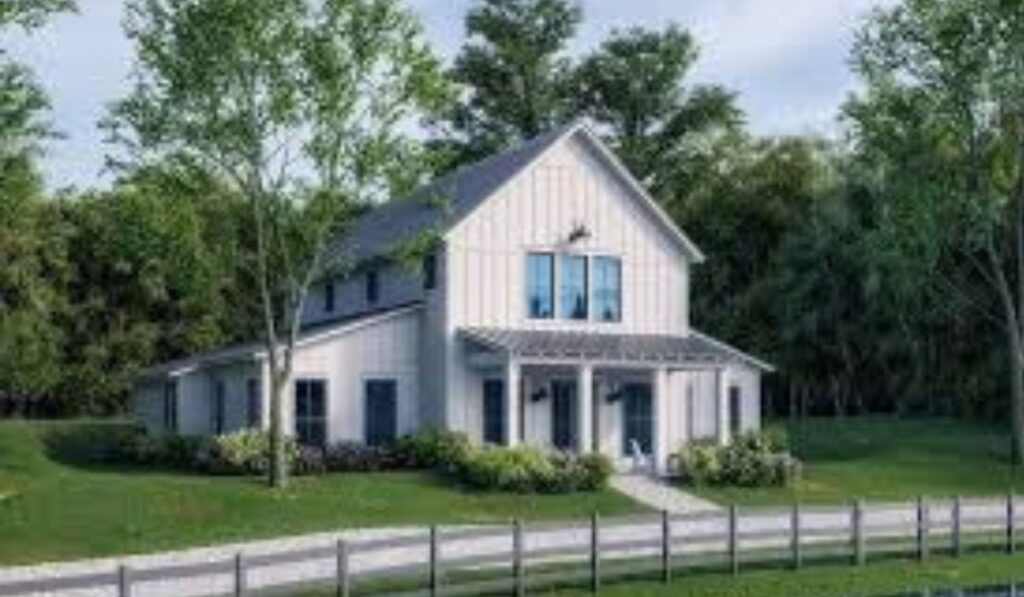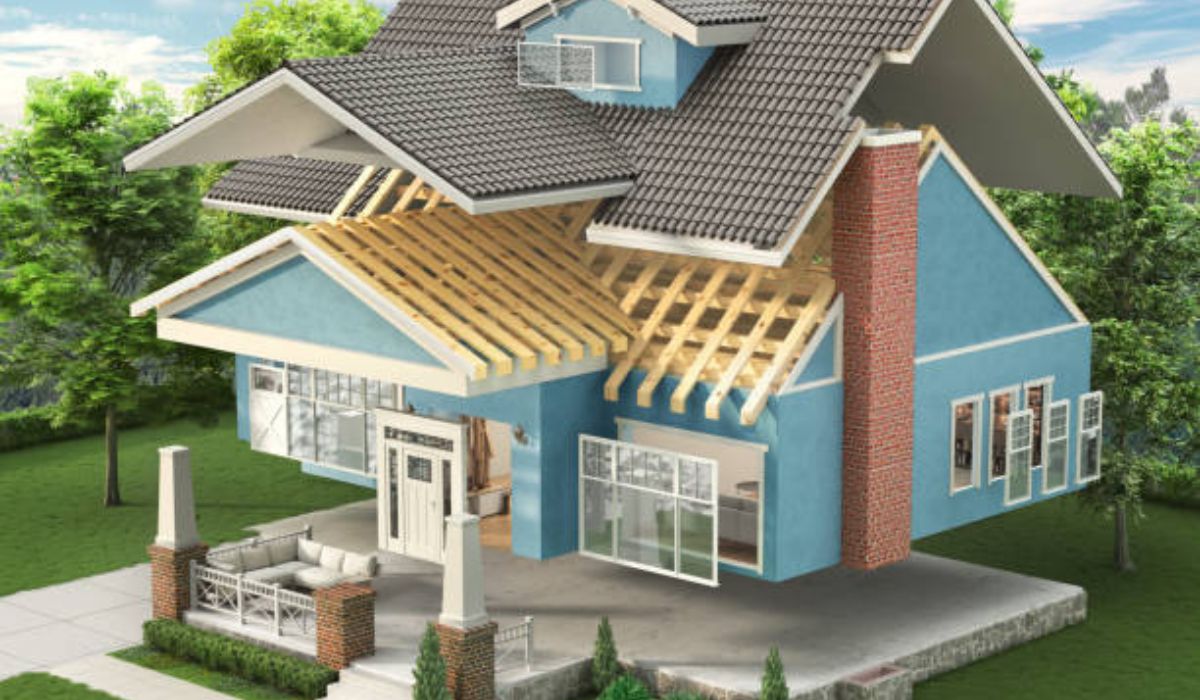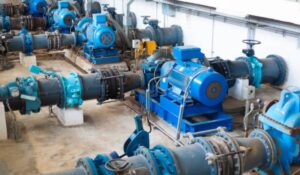How much does it cost to build a house Building a home is a significant investment, and understanding the costs involved is crucial for effective budgeting and planning. Whether you’re a first-time builder or looking to expand your real estate portfolio, knowing how much it costs to build a house will help you make informed decisions. This article will break down the key factors that influence the cost of home construction and provide tips to manage your budget.
What Affects the Cost to Build a House?
Several factors determine the overall cost of building a home. The most significant factors include:
- Location: Where you plan to build your house has a major impact on the price. Urban areas with high property demand will generally cost more than rural locations.
- Size of the House: The larger the home, the more materials and labor are required, increasing the cost. For example, a 2,000-square-foot home will cost more than a 1,500-square-foot house.
- Design Complexity: If you opt for a custom design with unique architectural features, your costs will likely rise. Simpler designs cost less to build.
- Materials: The quality and type of materials used in construction affect the cost significantly. For example, choosing high-end finishes will raise the overall price.
- Labor Costs: Depending on where you live, labor costs may vary significantly. Areas with a shortage of skilled workers may charge higher rates for construction labor.
- Permits and Regulations: Depending on local laws, you may need to pay for various permits, which can add to the overall expense of the project.
- Utility and Infrastructure Costs: Connecting your new home to water, sewer, and electricity systems can be an additional expense, particularly if you are building in an undeveloped area.
Average Cost to Build a House
The national average cost to build a house ranges from $100 to $500 per square foot, depending on location, size, and materials. Let’s break it down:
- Low-end estimate: $100,000 to $150,000 for a modest 1,500-square-foot home.
- Mid-range estimate: $250,000 to $400,000 for a 2,000 to 3,000-square-foot home.
- High-end estimate: $500,000 and above for luxury homes with high-end finishes.
While these figures give you a general idea, the cost can vary significantly based on specific factors in your area.
Land Costs
Before you build, you need land. The cost of land can range from a few thousand dollars to millions, depending on the location. For example, land in a rural area may be affordable, while lots in highly sought-after urban areas can be exorbitantly expensive.
Land preparation is also an important factor. Clearing trees, grading, and ensuring the land is level for building can add to your expenses. Additionally, if the land is in a remote location, you may need to install utilities, such as water, sewage, and electricity.
Material Costs
The materials you choose will have a significant impact on the total cost to build a house. Basic building materials like concrete, lumber, roofing, and drywall are essential, but the quality and type of each can vary dramatically. For example:
- Wood or Steel Frame: Wood framing is more common and typically cheaper than steel, but steel is stronger and more durable.
- Windows and Doors: Energy-efficient windows and doors might cost more initially, but they can save you money on utilities in the long run.
- Roofing: Asphalt shingles are cheaper than metal or tile roofing, but the latter options last longer and require less maintenance.
On average, material costs account for 50% of the total construction budget.
Labor Costs
Labor costs are the second-largest portion of the construction budget. According to industry experts, labor can take up about 40% of the total cost of building a house. Factors that affect labor costs include:
- Location: Labor tends to be more expensive in urban areas due to higher living costs.
- Project Size: Larger, more complex projects require more workers and specialists, driving up labor costs.
- Skill Level: Skilled tradespeople like electricians, plumbers, and carpenters may charge higher rates based on experience and demand.
It’s essential to get multiple quotes from contractors to compare prices and ensure you’re getting the best value for your money.
Additional Costs to Consider

Aside from the obvious costs of materials and labor, there are several hidden fees you might encounter when building a house.
Permits and Fees
Local governments require permits for various stages of the construction process, such as electrical, plumbing, and general building permits. The cost of permits varies by location, but they typically range between $1,500 and $5,000.
Inspections
Throughout the construction process, various inspections will be necessary to ensure that your home meets local building codes. These can add to your overall costs.
Architect and Design Fees
If you are building a custom home, hiring an architect to design the layout and features of your house is essential. Architect fees typically range from 5% to 15% of the total construction cost, depending on the complexity of the project.
Landscaping
Landscaping is often overlooked but can be a significant expense. Whether you hire professionals or handle it yourself, preparing your outdoor space will add to the cost of building your home.
Saving on Construction Costs
Building a house is expensive, but there are several strategies you can use to save money without sacrificing quality.
- Choose a Stock Plan: Instead of hiring an architect for a custom design, consider using a stock floor plan. These are pre-designed blueprints that can be customized to fit your needs, often saving you thousands of dollars in design fees.
- Opt for Simplicity: Simple designs, such as rectangular or square-shaped homes, are more affordable to build than more complex designs with multiple corners or custom features.
- Buy Materials in Bulk: Purchasing materials in bulk can lower costs, especially for items like lumber and drywall.
- Consider Prefabricated Homes: Prefabricated homes are built in sections at a factory and then assembled on-site. These homes can save you money on labor and materials while still providing quality construction.
- Shop Around for Contractors: Don’t settle for the first contractor you find. Get multiple quotes and ask for references to ensure you’re getting the best deal.
Financing the Construction of Your Home
If you’re wondering how to pay for the construction of your new home, several financing options are available. The most common methods include:
- Construction Loans: A construction loan provides short-term funding to cover the costs of building a house. These loans typically have higher interest rates than traditional mortgages.
- Home Construction Mortgages: Some lenders offer construction-to-permanent loans, which combine a construction loan with a traditional mortgage. This allows you to finance both the construction and the permanent loan in one transaction.
- Savings: If you have enough savings, paying for the construction out of pocket can save you on loan interest and fees.
Final Thoughts: How Much Does It Cost to Build a House?
The cost to build a house varies widely depending on several factors, including location, size, materials, and labor. On average, you can expect to spend between $150,000 and $500,000 for a typical home, but luxury homes can cost significantly more. By understanding the key expenses involved and finding ways to save on materials and labor, you can build a home that meets your needs without breaking your budget.
In conclusion, if you plan carefully, use simple designs, and shop around for the best deals, building a home can be a rewarding and financially sound investment. Now that you know how much it costs to build a house, you’re ready to start planning your dream home.
FAQs: How Much Does It Cost to Build a House?
1. What is the average cost to build a house in 2024?
The average cost to build a house in 2024 ranges between $150,000 and $500,000, depending on factors like location, size, materials, and labor. Luxury homes or homes in high-demand areas can cost significantly more.
2. What are the most expensive factors in home construction?
The most expensive factors are typically the size of the house, the quality of materials used, and labor costs. Custom designs, high-end finishes, and complex architectural details also increase the overall price.
3. How much does land cost when building a house?
Land costs vary greatly depending on the location. Urban areas tend to have higher land prices, ranging from $50,000 to several million, while rural areas can offer more affordable land options, sometimes as low as $10,000.
4. What permits are required to build a house, and how much do they cost?
You’ll need several permits, such as building, electrical, plumbing, and HVAC permits. These typically cost between $1,500 and $5,000, but this can vary based on your local government’s requirements.
5. Can I save money by building my house myself?
While it’s possible to save on labor costs by taking a DIY approach, building a house requires professional skills in areas like plumbing, electrical work, and structural engineering. Hiring experienced contractors ensures safety and adherence to local building codes, reducing the risk of costly mistakes.










































